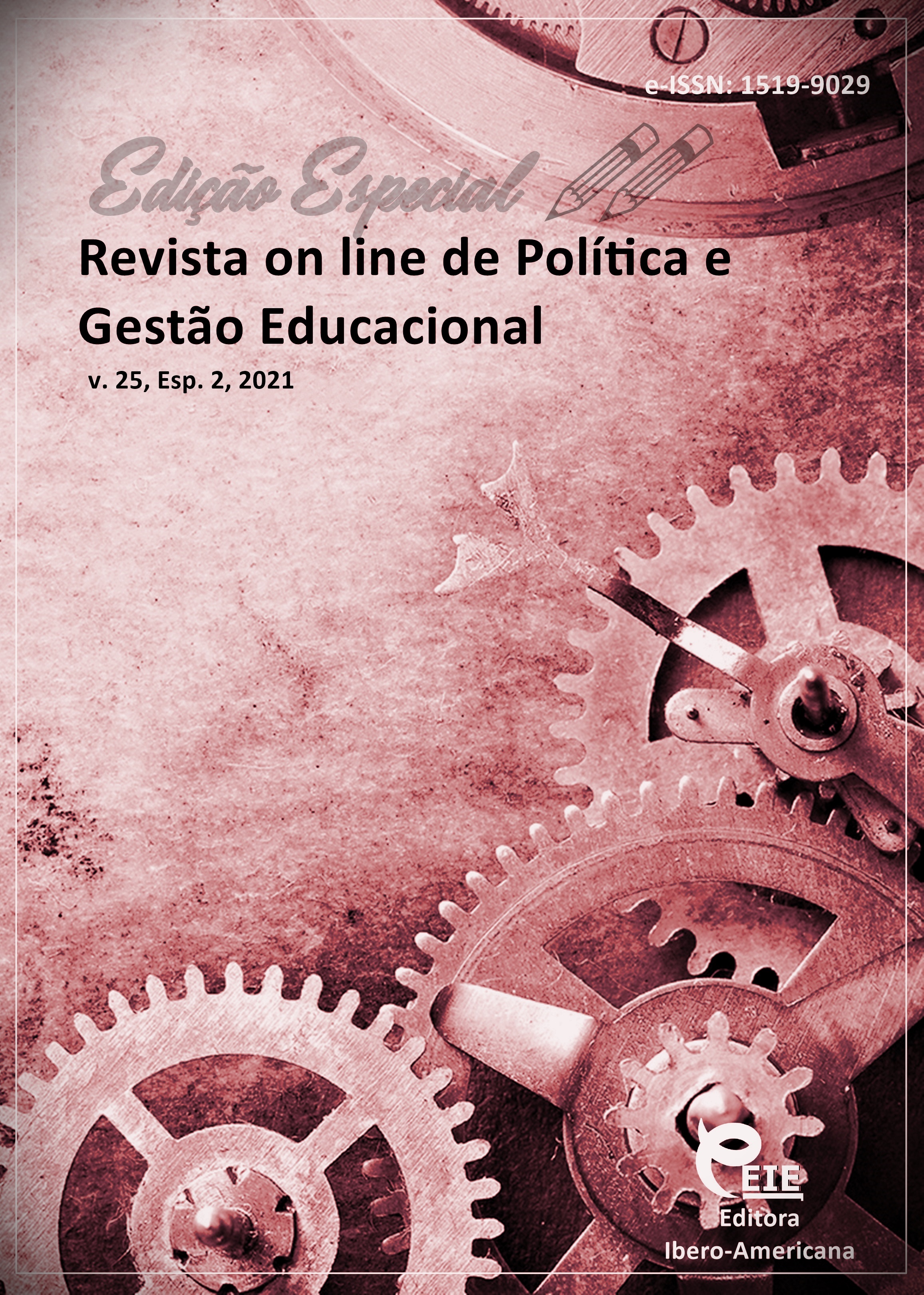A school at mosque in the structure of muslim religious education: status and evaluation
DOI:
https://doi.org/10.22633/rpge.v25iesp.2.15276Keywords:
Religión, Education, Mosque school, Maktab, Muslim educationAbstract
The Islamic revival naturally raised the issue of Muslim education in the post-Soviet space. The growth and strengthening of the ideology of radical Islamism in the public consciousness, the designation of the dominance of adherence to religious precepts in everyday life as opposed to secular laws, destructive actions under the slogan of protecting the "purity" of the faith necessitated the dissemination of religious knowledge that would not threaten the secular foundations of the Russian state. Therefore, the development of Muslim religious education in the territories of the historical spread of Islam acquired special significance, for it was intended to give those wishing to receive religious education such knowledge that would not preach inter-religious intolerance and would not spread radical ideas in Russian society. Empirical data indicate that the surveyed population positively assesses the quality of education in the mosque school, arguing that they receive good knowledge of the basics of Islam, have the opportunity to learn how to read the sacred text, as well as certain ritual actions that are quite significant for the respondents in their everyday life. As a secular education, religious education also has disadvantages, and to improve the state of Islamic education, according to the interviewed experts, it is necessary to hold national conferences, round tables, which will discuss issues of teacher training, to organize training courses of teachers of maktabs, ensure a school at the mosque unified educational and methodical literature.
Downloads
References
BAGATYRADAEVA, A. R. Formation and development of cultural and educational institutions in the process of becoming a cultural and educational space in Dagestan in the II half of the XIX century. Psychological and Pedagogical Sciences, v. 2, n. 23, p. 37-41, 2013.
BERGLUND J.; GENT, B. Believing, belonging and behaving: some considerations when teaching about islam. Available: https://www.su.se/polopoly_fs/1.385561.1526389353!/menu/standard/file/. Access: 08 Feb. 2019.
BILYALOV, V. R.; SEDANKINA, T. E. Problems of empathy of imams in the learning process in the Azov madrasah. Islamic studies, v. 8, n. 1, p. 27- 33, 2015.
HASSEN, Y. Making muslims: the politics of religious identity construction and victoria's islamic schools. Islam and Christian – Muslim Relations, v. 24, n. 4, p. 501- 517, 2013.
HILLS, P. a normative approach to the legitimacy of muslim schools in multicultural britain. Available: https: //schoolsweek.co.uk/a-normative-approach-to-the-legitimacy-of-muslim-schools-in-multicultural-britain. Access: 08 Feb. 2019.
KASHAF, S. R. Constructive dialogue in Makhachkala on the problems and prospects for the development of theological education in Russia. Islamic Studies, v. 11, n. 4, p. 907-931, 2018. DOI: 10.31162 / 2618-9569-2018-11-4-907-931
MEER, N. Muslim schools in britain: challenging mobilisations or logical developments? Available: https: // scholar . google . ru / citations ? user. Access: 08 Feb. 2019.
NURULLINA, R. Optimization of the Muslim education system in the Republic of Tatarstan: opinions and assessments of teachers and students of madrasah. Islamic Studies, v. 1, n. 8, p. 46-50, 2012.
OMAROV, A. Memories of a mutalim. Collection of information about the Caucasian highlanders. Tiflis, n. 1, p. 15- 31, 1868.
PATEEV, R. Russia: problems of co-optation of graduates of islamic universities into the official muslim clergy (on the example of dagestan). The Caucasus & Globalization, v. 2. n. 3, p. 150-160, 2008.
SEDANKINA, T. E. Modern problems of education in the religious and moral sphere. Islamic Studies, v. 6, n. 1, p. 37-44, 2013.
SHAKHBANOVA, M. M. The place of religion in the process of forming a culture of interethnic communication. Actual problems of the humanities – 2009. Makhachkala, 2009. p. 15-24 (Collection of scientific papers)
SHANGARAEV, R. Problems of religious education: the state of educational and methodological support of Muslim religious educational institutions (madrasah) of the Republic of Tatarstan. Islamic Studies, v. 2, n. 8, p. 4-16, 2011.
SHIKHSAIDOV, A. R.; TAGIROVA, N. A.; GADZHIEVA, D. K. Arabic handwritten book in dagestan. Makhachkala, 2001. 256 p.
SOKOL, M. et al. Tolerance in the communicative culture of modern educational manager. Propósitos y Representaciones, v. 9, n. esp. 3, e1171, 2021.
TEMIROV, A. M. The state of muslim confessional education in dagestan in the 20s of the XX century. Ethnosocium and Interethnic Culture, v. 3, n. 11, p. 67-71, 2008.
YARLYKAPOV, A. A. Islamic education in the north caucasus in the past and in the present. Bulletin of Eurasia, n. 2, p. 5-31, 2003.
Published
How to Cite
Issue
Section
License
Copyright (c) 2021 Revista on line de Política e Gestão Educacional

This work is licensed under a Creative Commons Attribution-NonCommercial-ShareAlike 4.0 International License.
Manuscritos aceitos e publicados são de propriedade da Revista on line de Política e Gestão Educacional. É vedada a submissão integral ou parcial do manuscrito a qualquer outro periódico. A responsabilidade do conteúdo dos artigos é exclusiva dos autores. É vedada a tradução para outro idioma sem a autorização escrita do Editor ouvida a Comissão Editorial Científica.











